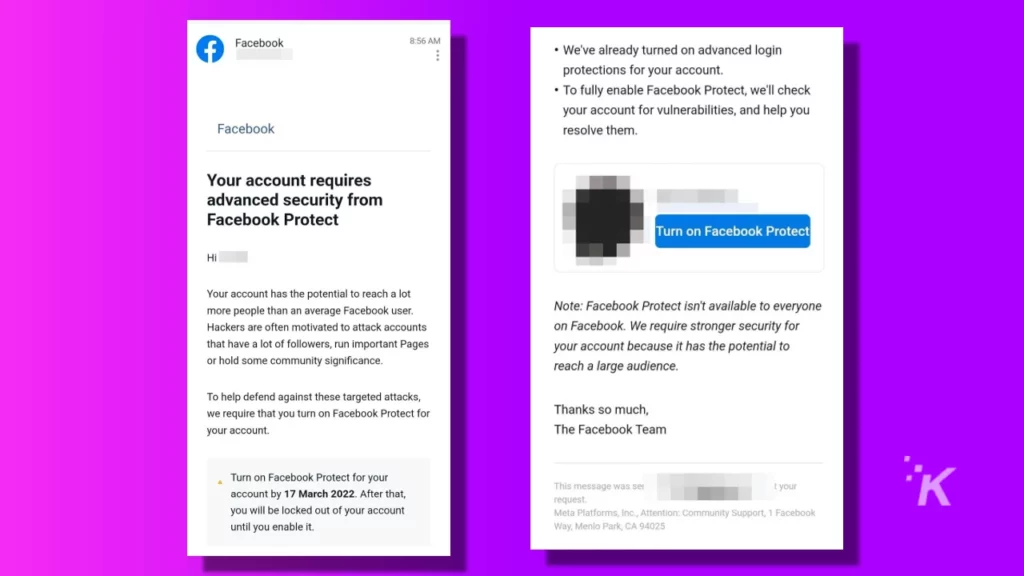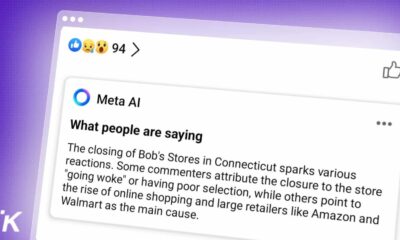Meta warns users to sign up for Facebook Protect or risk getting locked out
Facebook Protect, first introduced in 2020, is meant to protect “at-risk” accounts.

Just a heads up, if you buy something through our links, we may get a small share of the sale. It’s one of the ways we keep the lights on here. Click here for more.
Some Facebook users have started getting spammy-looking emails about turning something called Facebook Protect on. The emails have a link to enable the setting; and a warning that they will be locked out of their account if they refuse.
It seems like a phishing email, but it isn’t. Facebook really does want these people to turn on its advanced Protect feature.
Those accounts are designated as “high-risk” for things like account takeovers. Many of the emails have been sent out to journalists, activists, and politicians, but they will all benefit from the additional security measures.
First rolled out to combat interference in the 2020 elections, Facebook Protect is an extra layer of security for your account.
It first requires you to turn on two-factor authentication for your account. This could be via a third-party authentication app, or a hardware-based solution like a YubiKey.
READ MORE: How to enable Facebook Protect
The second part is some behind-the-scenes threat detection by Facebook. It flags any issues early, so Facebook’s security teams can respond if someone is trying to compromise your account.

Currently, it seems Facebook Protect notices are going out to journalists and activists. Meta says they plan to expand the program throughout the year, so maybe everyone on Facebook will have a chance of enrolling at some point.
READ MORE: Apple and Meta handed over data to hackers pretending to be police
While Facebook Protect is a good step in the right direction, Meta does need to work on the implementation.
Having users click on a link in an email to join up looks like a phishing attempt; especially if it doesn’t come after any sort of details about the program. The on-platform notifications are better, as at least you know those come from Facebook.
Have any thoughts on this? Let us know down below in the comments or carry the discussion over to our Twitter or Facebook.
Editors’ Recommendations:
- Meta is working on a universal translator, but there is no release date yet
- Twitter Blue users on Android can finally change their homescreen icon
- TikTok is rolling out 10-minute videos so you can waste even more time on the app
- Instagram now lets you send private Story likes that don’t clog up your DMs
































